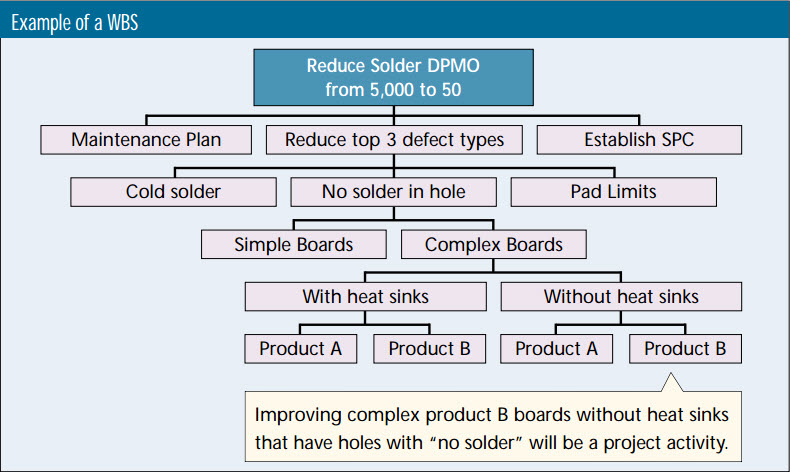-
Voice of the Customer-The New QFD
To say Mary Scott was nervous was an understatement. She was downright scared. Since her new boss told her that Quality 2.0 would be different, there was one change that she most dreaded: making her department’s transition from a cost center to a profit center. “We need to sell our services, people,” Mary announced. She…
-
Root Cause Analysis: When to Stop
“Is that Miss or Mrs.?” the receptionist asked. “Miss,” replied the elderly lady. “My friends just call me Di.” The receptionist nodded as she typed. “Got it. Miss Di Agnosed. That should be all we need for the records. You can see the doctor now.” Dr. W. R. Ong smiled pleasantly. “What seems to be…
-

Selecting Winning Project Portfolios
Software helps select the best projects. In a previous post I discussed how Six Sigma projects should be selected using the theory of constraints (TOC). After attempting to do so, most discover yet another constraint: money. In most organizations there are more opportunities for improvement than one can afford to pursue. If it isn’t money,…
-

DMAIC and Project Plans
Six Sigma’s magic doesn’t lie in statistical or high-tech razzle-dazzle. Six Sigma relies on tried-and-true methods that have been around for decades. In fact, Six Sigma discards a great deal of the complexity that characterizes total quality management (TQM). By one expert’s count, there are more than 400 TQM tools and techniques. Six Sigma takes…
-

Divide and Conquer
A typical Six Sigma project adds between $145,000 and $250,000 to the bottom line. These numbers provide useful guidelines to the Black Belt for breaking the project down to manageable size. True Six Sigma projects are neither too large nor too small. It’s rare that the project as it’s initially proposed will be the right…
-

Defining Six Sigma Projects
Six Sigma’s impressive bottom-line results normally flow from Six Sigma projects. Properly defined Six Sigma projects meet certain criteria: Six Sigma Criteria The project definition is made explicit in the project charter, which is a document issued by senior management, usually the project sponsor (not the project manager or Black Belt), that provides the project…
-

Cargo Cult Six Sigma
In the South Seas there is a cargo cult of people. During the war they saw airplanes with lots of good materials, and they want the same thing to happen now. So they’ve arranged to make things like runways, to put fires along the sides of the runways, to make a wooden hut for a…
-
The Six Sigma ‘Crystal Ball’: Predictive Power in Your Hands
Understanding outcomes and interpreting historical events becomes less challenging with the right tools. One considerable issue Six Sigma professionals often grapple with is articulating the methodology to those unfamiliar with it. This can occur anywhere – from a workplace meeting to a casual social gathering. Telling someone, “I’m a Six Sigma Black Belt,” may not…
-
Typical Six Sigma Project Tasks and Responsibilities
Although every project is unique, most Six Sigma projects which use the DMAIC framework have many tasks in common, at least at a general level. Many people find it helpful if they have a generic “template” they can use to plan their project activities. This is especially true when the Black Belt or Green Belt…
-

Is Six Sigma the Next Step in Quality Enhancement?
Understanding the distinctions between Six Sigma and Total Quality Management (TQM) In my previous post, ‘Why Six Sigma Is Not TQM‘, I proposed that Six Sigma is inherently distinct from Total Quality Management (TQM) in numerous ways. This assertion evoked diverse responses from many readers, some disagreeing with certain points I put forth. While I…
